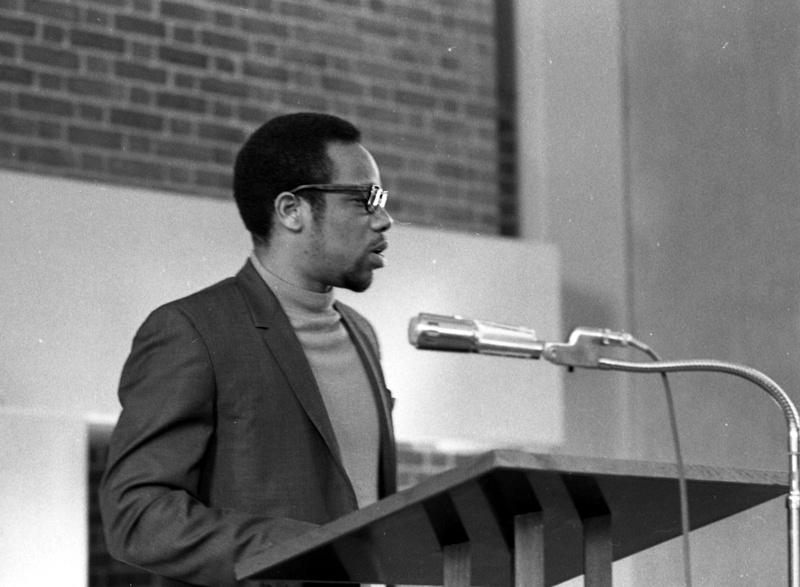In the establishment of the Africana Studies program, the Committee for Afro-American Studies (CAAS) requested only one full-time appointment in the program, the director, perhaps as a means of expediting its approval—the College would only have to fund one new faculty line. In practice, that meant the faculty director not only taught but managed the program, developed curriculum, and advised majors as well as the African American Society. This arrangement persisted for forty years, making the contribution of students’ time, effort, and advocacy to the program invaluable.
Activism On and Beyond Campus
Beyond promoting black intellectual and cultural life at Bowdoin, students were committed activists on and off campus. In 1968, BUCRO organized Human Rights Day in Maine, which focused on justice for Native Americans in the state. Similarly, they launched a campuswide fundraising campaign for the Community on the Move for Equality, the sanitation workers rights organization Dr. King was advocating for in Memphis the day he was shot. Some students, like Richard Adams ’73, were involved with the Maine Black Political Caucus. Adams served as press officer as well as the minister of public relations for the Society.
